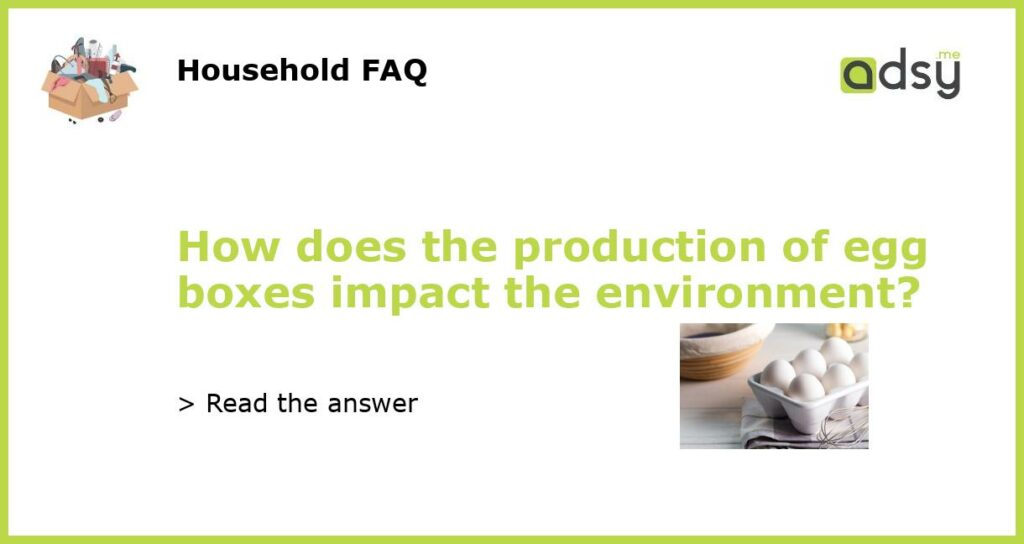Understanding the Impact of Egg Boxes on the Environment
It’s no secret that humans have been adversely impacting the environment for decades, and production practices across various industries have contributed significantly to this impact. Egg box manufacturing is no exception, but how exactly does the production of egg boxes impact the environment?
The Process of Egg Box Production and Its Environmental Impacts
Egg boxes are typically made from paper pulp or plastic. In the case of paper pulp egg boxes, the production process involves chopping down trees to create wood pulp, which is then bleached and mixed with a variety of chemicals to form the paper pulp used in the creation of egg boxes. This process consumes significant amounts of water, energy, and produces industrial waste as a by-product.
The production of plastic egg boxes, on the other hand, involves the use of fossil fuels and toxic chemicals in its manufacturing process. Not only does this contribute to greenhouse gas emissions, but plastic egg boxes also take hundreds of years to decompose which ultimately ends up polluting the environment.
The Disposal of Egg Boxes and Its Environmental Impacts
Egg boxes, like most consumer products, ultimately end up as waste. If not disposed of properly, paper pulp egg boxes can take nearly 50 years to decompose in regular landfill sites, while plastic egg boxes can take hundreds of years. Additionally, improperly disposing of egg boxes can result in harmful chemicals leaching into the soil and water supplies, directly affecting the ecosystem.
However, there are ways to mitigate the environmental impact of egg box disposal. Recycling egg boxes, for instance, can reduce the amount of waste in landfills, save energy, and limit the need for raw materials. Composting egg boxes is also an eco-friendly option as paper pulp egg boxes are compostable and provide nutrients for the soil.
Sustainable Alternatives to Egg Boxes
There are several sustainable alternatives to traditional egg boxes that can help to reduce their environmental impact. One alternative is the use of recycled plastic egg boxes, as companies are increasingly looking to use recycled materials to limit their contribution to greenhouse gas emissions. Another option is the use of biodegradable egg boxes, made from materials that break down easily and contribute to the nutrient content of soil.
In addition to these alternatives, many companies are also beginning to adopt sustainable logistics and packaging practices, such as reusable containers for transportation and delivery, which further reduce the impact of egg box production and consumption.
Reducing the Environmental Impact of Egg Box Production and Disposal
Overall, the production and disposal of egg boxes have significant impacts on the environment. With a growing focus on sustainability, it’s crucial for industry players and consumers alike to adopt eco-friendly practices and alternatives to limit their contribution to environmental degradation. By reducing waste, using recycled materials, and adopting sustainable packaging practices, we can all do our part to mitigate our impact on the environment and create a more sustainable future.






